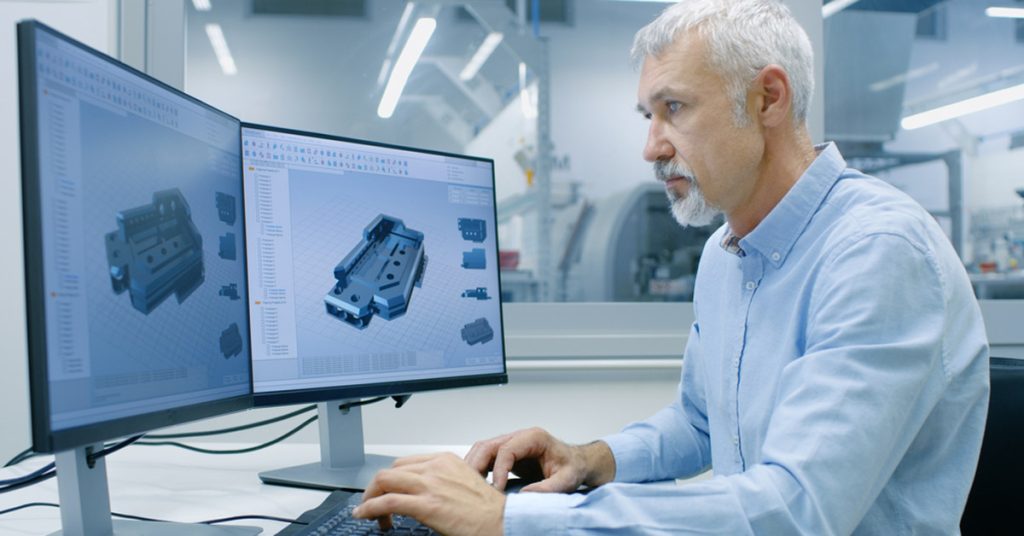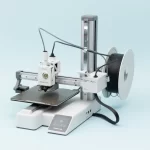Introduction
Mechanical engineering, one of the oldest and broadest branches of engineering, has consistently evolved to meet the demands of society. As we move further into the 21st century, the future of mechanical engineering promises to be even more dynamic, driven by technological advancements, sustainability requirements, and evolving societal needs. This analysis explores the key trends, innovations, and challenges that will shape the future of mechanical engineering.
Technological Advancements
1. Additive Manufacturing (3D Printing)
Additive manufacturing, commonly known as 3D printing, is revolutionizing the manufacturing landscape. This technology allows for the creation of complex geometries that were previously impossible or too expensive to produce with traditional manufacturing methods. Future developments in additive manufacturing will likely focus on:
- Material Diversity: Advancements in printable materials, including metals, ceramics, and composites, will expand the applications of 3D printing in mechanical engineering.
- Speed and Efficiency: Innovations aimed at reducing printing times and increasing production efficiency will make 3D printing more viable for large-scale manufacturing.
- Customization and Flexibility: The ability to produce customized parts on-demand will become more prevalent, enabling more personalized and adaptive engineering solutions.
2. Robotics and Automation
Robotics and automation are critical to the future of mechanical engineering. The integration of advanced robotics into manufacturing and other sectors will continue to grow, driven by:
- Artificial Intelligence (AI): AI will enhance the capabilities of robots, allowing for more complex decision-making processes and greater autonomy in various tasks.
- Collaborative Robots (Cobots): The development of robots designed to work alongside humans safely will revolutionize workplaces, increasing productivity and reducing the risk of injuries.
- Internet of Things (IoT): The interconnectivity of devices through IoT will enable real-time monitoring and optimization of mechanical systems, improving efficiency and reducing downtime.
3. Nanotechnology
Nanotechnology is opening new frontiers in mechanical engineering. The ability to manipulate materials at the atomic and molecular levels has significant implications for:
- Materials Science: Development of stronger, lighter, and more durable materials.
- Medical Devices: Creation of more precise and minimally invasive medical instruments.
- Energy Solutions: Enhancement of energy storage and conversion technologies, such as batteries and solar cells.
Sustainability and Environmental Impact
1. Renewable Energy Systems
The shift towards renewable energy is a crucial aspect of the future of mechanical engineering. Engineers will play a pivotal role in designing and optimizing systems that harness renewable energy sources, including:
- Wind Turbines: Improved designs for efficiency and reliability.
- Solar Panels: Advances in photovoltaic technology to increase energy capture and conversion rates.
- Energy Storage: Development of efficient and scalable energy storage solutions, such as advanced batteries and supercapacitors.
2. Green Manufacturing
Sustainable manufacturing practices are becoming increasingly important. Mechanical engineers will focus on:
- Waste Reduction: Implementing processes that minimize waste production and promote recycling and reuse of materials.
- Energy Efficiency: Designing systems and processes that consume less energy and utilize renewable energy sources.
- Life Cycle Assessment: Evaluating the environmental impact of products from cradle to grave to inform better design and manufacturing decisions.
3. Sustainable Transportation
The transportation sector is undergoing significant transformations, driven by the need for sustainability. Mechanical engineers are at the forefront of developing:
- Electric Vehicles (EVs): Improved battery technology and vehicle designs to enhance range, efficiency, and performance.
- Public Transportation: Innovations in public transport systems, such as high-speed trains and sustainable urban transit solutions.
- Alternative Fuels: Research into and development of alternative fuels, such as hydrogen and biofuels, to reduce the carbon footprint of transportation.
Challenges and Opportunities
1. Skills and Education
The rapid pace of technological advancement poses challenges for the education and training of future mechanical engineers. Key considerations include:
- Interdisciplinary Knowledge: Future engineers will need a broad understanding of various fields, including computer science, materials science, and environmental science.
- Lifelong Learning: Continuous education and professional development will be essential to keep pace with technological changes.
- Practical Experience: Enhanced focus on hands-on experience and practical skills in educational programs.
2. Ethical and Social Implications
The integration of new technologies brings ethical and social considerations that mechanical engineers must address:
- Job Displacement: Automation and robotics may lead to job displacement in certain sectors, requiring strategies for workforce transition and upskilling.
- Privacy and Security: The proliferation of IoT and connected devices raises concerns about data privacy and security.
- Environmental Justice: Ensuring that technological advancements do not disproportionately impact vulnerable communities.
3. Global Collaboration
Solving complex global challenges, such as climate change and resource scarcity, requires international collaboration. Mechanical engineers will need to:
- Work Across Borders: Engage in cross-border collaborations and knowledge sharing.
- Standardization: Develop and adhere to global standards for technology and sustainability practices.
- Cultural Competence: Understand and navigate cultural differences to effectively collaborate with international partners.
Conclusion
The future of mechanical engineering is poised to be both exciting and challenging. Technological advancements in additive manufacturing, robotics, and nanotechnology will drive innovation, while the focus on sustainability will redefine engineering practices. However, these opportunities come with challenges related to skills development, ethical considerations, and the need for global collaboration. Mechanical engineers who can adapt to these changes and embrace interdisciplinary approaches will be at the forefront of shaping a sustainable and technologically advanced future.
In summary, mechanical engineering will continue to be a critical field, evolving to meet the demands of a rapidly changing world. The successful integration of new technologies, sustainable practices, and ethical considerations will determine the trajectory of this essential discipline.


